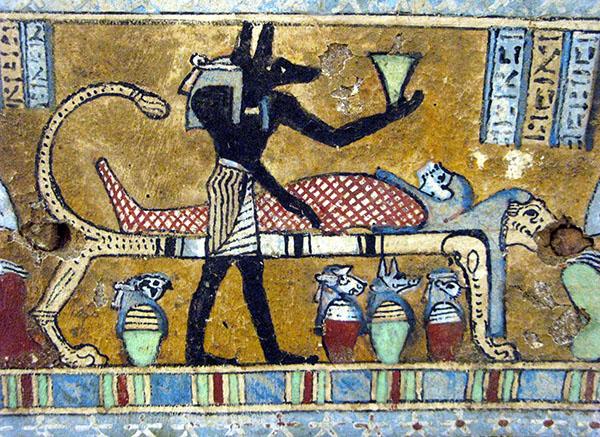:exclaim:Book of Abraham 1:27 wrote:27 Now, Pharaoh being of that lineage by which he could not have the right of Priesthood, notwithstanding the Pharaohs would fain claim it from Noah, through Ham, therefore my father was led away by their idolatry;
Smith makes a mistake of colossal proportion, so large and so vast, that no Egyptologist or historian could possibly endorse it or even consider the implications that there is a shred of truth to it. Not even John Gee can make it work.
My apprentice, RFM, are you there? Pull up a chair and listen up. This is major and I'm going to arm you with force lightning! Wipe them out, all of them!
Note that Smith says "Pharaoh being of that lineage" is what barred him from receiving the same priesthood in which Abraham sought (see verse 4). That lineage supposedly goes back to Ham -- one of Noah's sons who rode the ark some 350 years prior. Abraham explains that Pharaoh had no right to the priesthood and then in his next breath reveals something so large and so important that the jaws of every Egyptologist should drop:
"Pharaohs would fain claim it"
I'm afraid my apprentice, RFM, fails to see what I'm talking about so I'll help you see more clearly:
"Pharaohs would fain claim it"
Abraham is not just talking about the idolatrous Pharaoh of his own day fain claiming the priesthood but ALL the Pharaohs (PLURAL) since the days of Ham!! And with that said, how may Pharaohs ruled Egypt over the course of 350 years? This implies a sure knowledge that the kings of Egypt would have known of HAM and details of this information would have been contained in Egyptian chronicles and in the records not just from the days of Ham but all the way to Abraham and THEREAFTER!!!
Sadly, for the Book of Abraham, there is no historical evidence of any kind to suggest that Pharaohs from the days of Ham all the way to Abraham and thereafter, fain claimed any kind of priesthood from the likeness of Noah who is nothing more than a myth.
Egyptology as explained in the Book of Abraham is a total joke and should be dismissed out of hand by any reasonable thinker.




